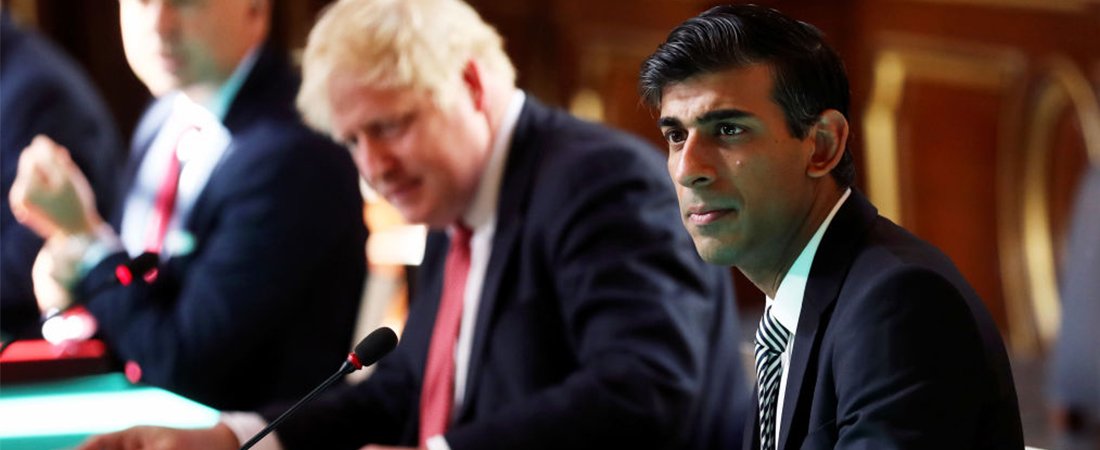Yesterday Rishi Sunak was photographed carrying a note with the text of his address to the 1922 Committee. This was something we lived in constant fear of when I worked in No.11. One day I forgot to put a folder round a note I was carrying on our 2018 Budget ‘rabbit’ and subsequently spent the next 6 hours feverishly refreshing Twitter to check if I had been spotted. Thankfully on that occasion I got away with it, otherwise my HMT career might have ended rather sooner.
Nightmare inducing reminiscences aside, more interesting is the pitch that the Chancellor was making about positioning the Conservatives as the “party of economic competence.” For the first time in a long time, Conservatives are having to face the question of what this actually means. Economic competence is a concept that all Conservatives can sign up to in theory, but it’s amazing how few Conservative MPs have understood what this means in practice. In order to maintain their mantle for economic competence, at least against their own internal logic of the last decade, Conservative MPs are going to have to vote for significant action to improve the sustainability of the public finances. Yet because of the differing make up of their voting base, it is only really Labour that has the political space to turn the rhetoric of economic competence into reality.
The Tory’s natural instincts will be to further cut spending, but this is far from easy. We used to create lists of options for cuts at each Budget when I was in HMT, yet by the time I left earlier this year that list had grown remarkably small. The only way to make meaningful savings is through cuts to big spending departments such as health, education and defence. However all these areas are subject to either political or parliamentary commitments that will be politically nearly impossible for the government to break.
Cuts to welfare are not a credible option either. As the pandemic has highlighted, working age welfare is hardly the safety net that many, wrongly, believed it to be. With potential mass increases to unemployment looming, all the political pressure will be to increase the generosity of these benefits. Pensioner benefits do provide an option for savings, but again the politics of this are difficult. The ‘Triple Lock’ on pensions was protected in the Conservative Manifesto and the Prime Minister has committed to look at even the most minor cut to pensioner benefits – the BBC removing Free TV licences from the over 75’s.
That leaves the question of raising tax to help revive the Conservatives reputation of economic competence. But as Paul Jonson has recently pointed out, to raise significant sums of money your only option is to pull one of the big tax levers such as National Insurance, Income Tax or VAT. This is something that many MPs of all parties simply don’t get; I remember a conversation with a group of MPs who suggested that a 10p surcharge on disposable coffee cups could be used to pay for the largest ever increase in health spending. Other tax changes such as looking at relief on pensions, capital gains, fuel duty or dividends may help. However the problem for Conservative MPs is that these tax changes fundamentally hit their core voting base; older, wealthier people who are largely based outside of cities. To go after these groups with large tax increases would be to fundamentally alter what and who the Conservative Party stands for.
So where does this leave the Conservatives as the party of economic competence? It means they have to argue that greater borrowing at a time of record low interest rates is the sensible thing to do and hope they can grow their way out of the current fiscal hole. But as the Chancellor’s briefing note put it “then what is the difference between us [Conservative’s] and the Labour Party.” In this analysis I think he is missing a key point. There is a difference between the Conservatives and Labour; that because of Labour’s differing support base, the party is more able to take on some of the difficult tax changes that will be so repugnant to Conservative MPs. In considering things like wealth and land taxes (albeit inconsistently) Labour are the party seriously considering a sustainable long-term economic strategy.
None of this may matter come the next election. Voters regularly elect Conservative governments whose economic competence is more fiction than fact. However, they never elect a Labour Party they don’t trust on the economy. In being prepared to have that grown up conversation with voters, Anneliese Dodd’s and her team are removing another impediment to Labour mounting a credible challenge in 2024.

